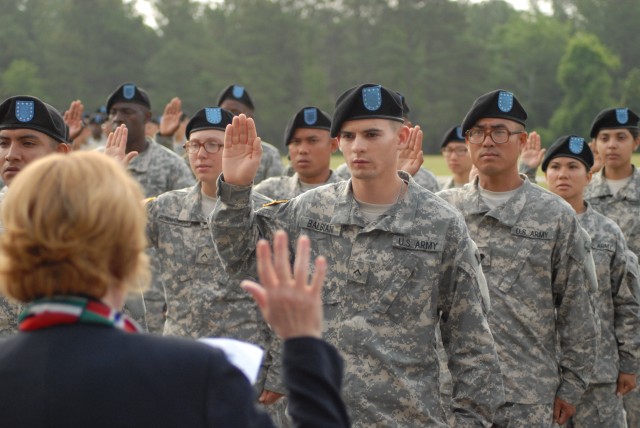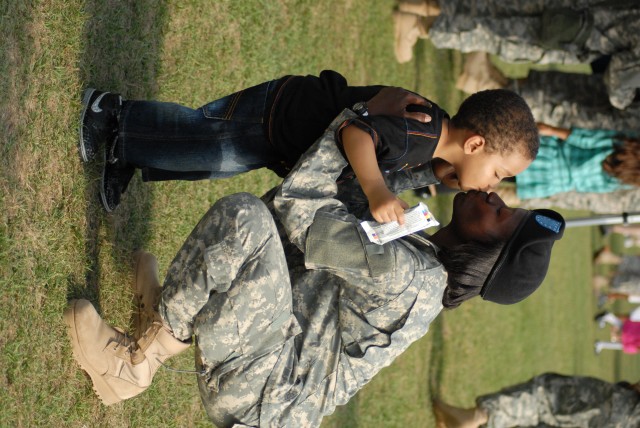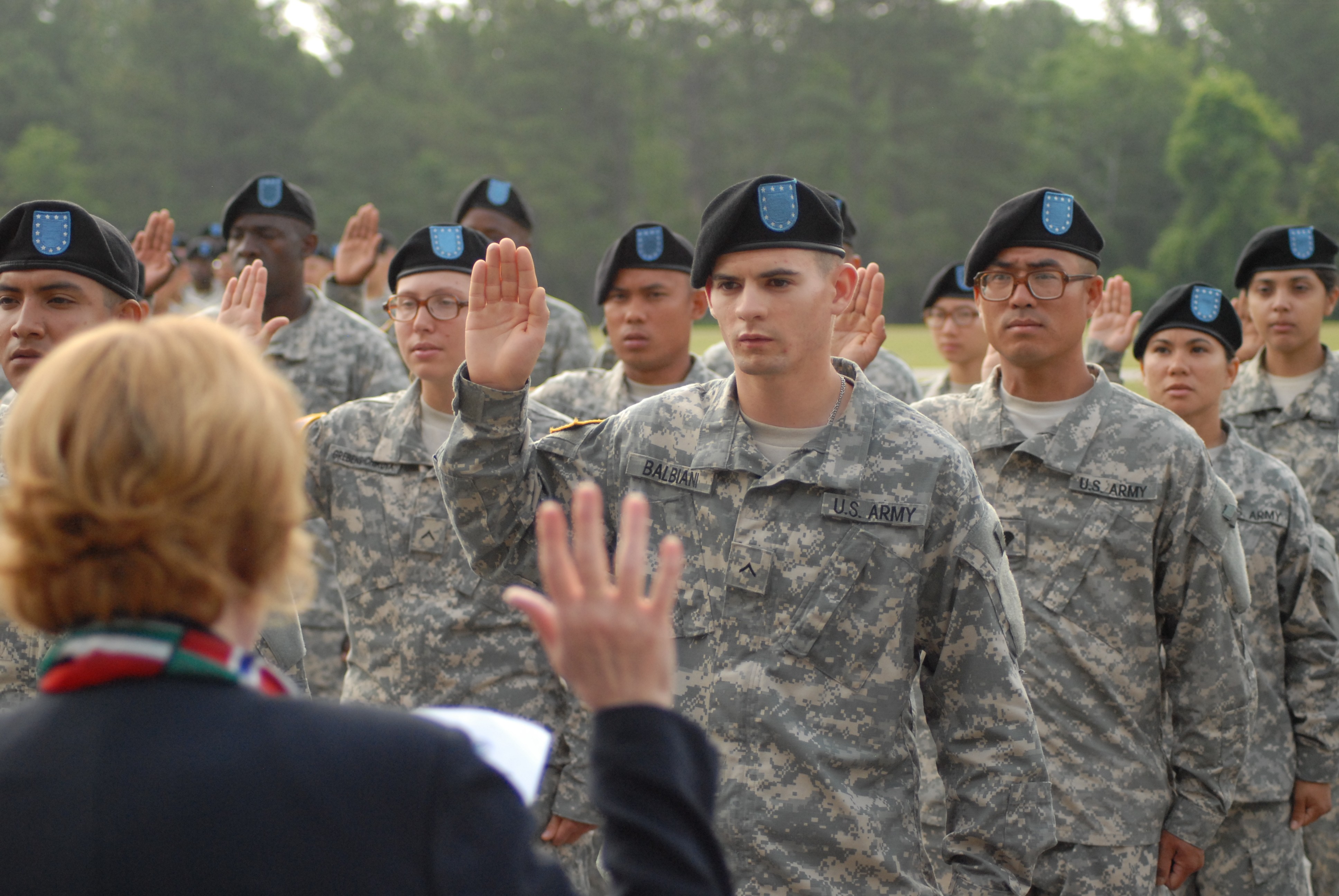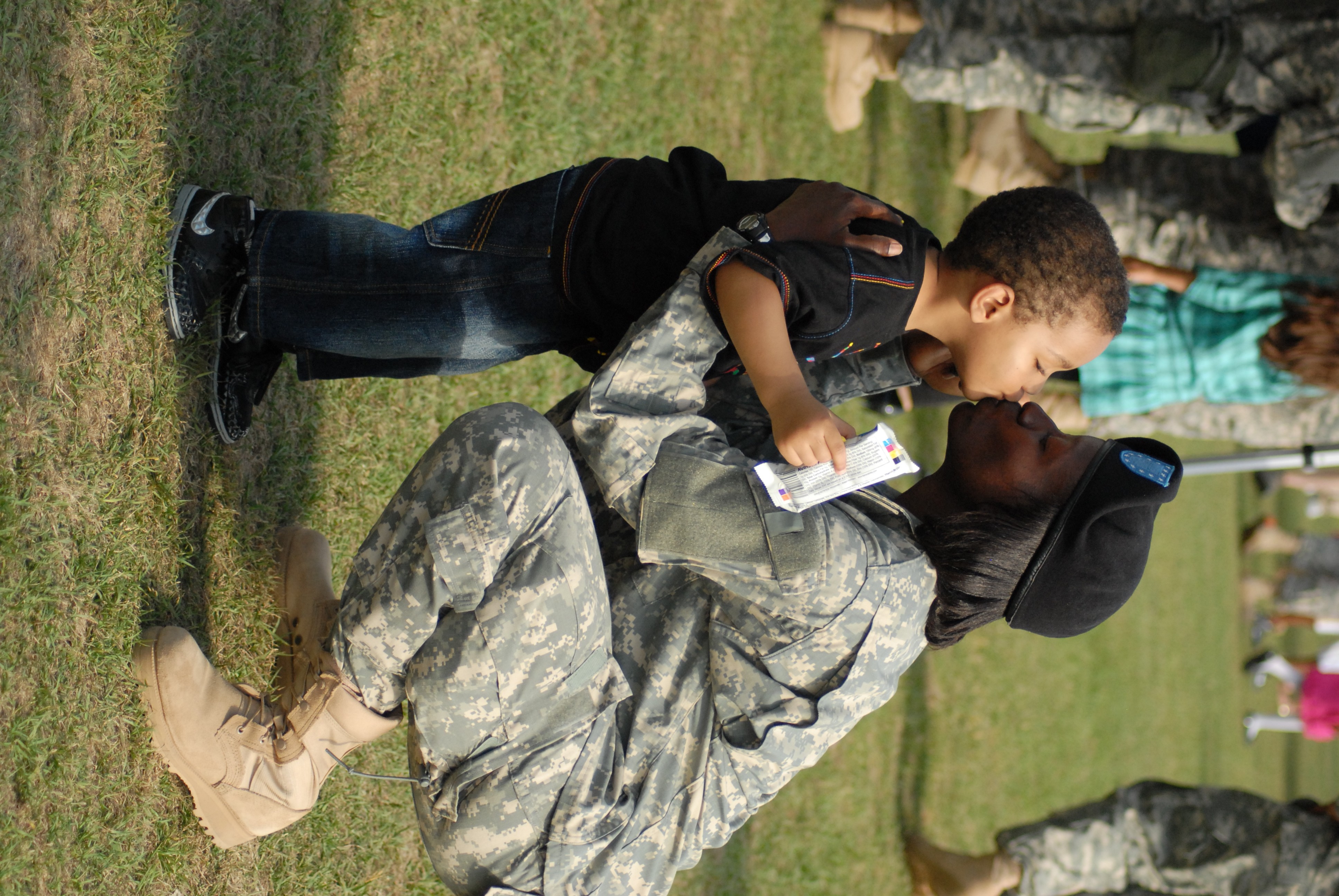FORT JACKSON, SC -- A group of non-citizen Soldiers assembled at Hilton Field last Thursday as their dream of becoming Americans came true.
A day before graduating Basic Combat Training and becoming some of the U.S. Army's newest Soldiers, 52 BCT Soldiers also became some of the United States' newest citizens.
In front of their fellow graduating Soldiers and about 1,000 family members who attended the 2nd Battalion, 39th Infantry Regiment's Family Day celebration May 6, the 52 Soldiers raised their right hands to pledge the Oath of Allegiance to the United States in one of the largest naturalization ceremonies in Fort Jackson's history.
Before administering the oath, Rosemary Langley Melville, acting Southeast regional director of U.S. Citizenship and Immigration Services, underscored the gravity of the commitment these Soldiers were about to make.
"Think about these words because they are very, very meaningful and we expect you to fully mean them as you say them," Melville said.
The Soldiers hailed from 35 countries.
"Despite having been born outside the United States, these Soldiers have embraced our nation by joining the Army," said Melville, who remarked that by doing so, these Soldiers have "certainly demonstrated their patriotism."
The new citizens also vowed to perform work of national importance, something Spc. Rajasekhar Katuru intends to live up to in his new role as a combat medic while on his quest to become an emergency room physician.
Katuru, 29, was a family care physician in his native country, India, before coming to the U.S. four years ago as a student to work on a master's degree in clinical nutrition. For the last two years he's been doing research in cancer and nutrition. He said becoming an American citizen will open a lot of doors that were closed to him before naturalizing.
"The Army gives me a good opportunity to pursue the specialty I want," Katuru said. "Without citizenship, I could go into internal medicine or become a pediatrician, but I really want to be an ER physician. In India we don't have an ER residency, so becoming a citizen makes a lot of difference for me."
On July 3, 2002, President George W. Bush signed the "Expedited Naturalization Executive Order," which allowed for the expedited naturalization of aliens and non-citizens serving in the U.S. military on or after Sept. 11, 2001.
Beforehand, service members would have had to serve one year before qualifying to file for citizenship. Now immigrants who enlist during a time of war could apply after serving only one day.
As a result, the USCIS and the Army established the Naturalization at Basic Training Initiative to give non-citizen enlistees the opportunity to naturalize at the completion of basic training.
During BCT, as Soldiers are being introduced to Army life and honing their combat skills, the USCIS' immigration officers and staff travel to installations like Fort Jackson to help them meet requirements for naturalization, which include filling out an application, being fingerprinted for a background check and passing an English literacy and civics test.
All application and fingerprinting fees are waived.
"They are already making the greatest sacrifice by volunteering to serve," said Ana Santiago, regional media manager for the USCIS Southeast Region Office of Communication. "We do everything we can to shepherd them into citizenship."
Capt. Jameelah Grover, executive officer for the 2-39th, said leaders within the Soldiers' units also play a big part in making the naturalization process a success. She credits unit leaders for ensuring the Soldiers not only meet requirements of BCT graduation, but also the requirements for citizenship.
"Sometimes Soldiers may have appointments (for naturalization) but are also scheduled to be on the range, qualifying on their weapons," Grover said. "With balancing and tasking out of the few resources they have, the units make sure these Soldiers get done what they need to get done."
Fort Jackson's first naturalization ceremony took place in August when eight Soldiers became citizens. Since then, 217 Fort Jackson Soldiers have raised their right hand to recite the oath.
Since September 2001, USCIS has naturalized more than 58,300 members of the military at installations in the U.S. and overseas.
For more information, contact the USCIS at 1-877-CIS-4MIL (877-247-4645), or visit their website at http://www.uscis.gov/military.




Social Sharing